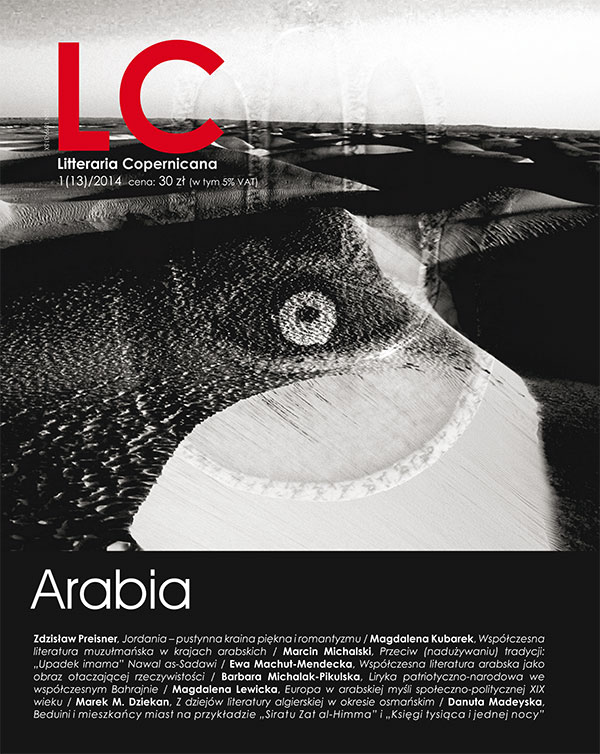Kitab al-alim wa-al-ghulam Dżafara Ibn Mansura al-Jamana jako przykład wczesnej literatury isma’ilickiej
DOI:
https://doi.org/10.12775/LC.2014.008Słowa kluczowe
Jemen, literatura, Dżafar Ibn Mansur, isma’ilici, ezoterykaAbstrakt
Isma’ilicki nurt islamu ma długą i złożoną historię oraz bogatą literaturę. Szczególnie rozkwitła ona pod rządami dynastii Fatymidów po 909 roku. Charakter literatury isma’ilickiej był ściśle związany z naturą misji isma’ilickiej oraz jej założeniami religijnymi, stąd znaczenie tekstów religijnych i filozoficznych, w których wyjaśniano doktrynę oraz tekstów prawnych. Główne cechy wczesnego systemu isma’ilickiego to podział treści na ezoteryczne (batin) i egzoteryczne (zahir), podnoszenie znaczenia imamów jako przyjaciół Boga (aulija Allah), tajemniczość i niejasność tekstów wynikająca z przekonania, że są one dostępne jedynie dla inicjowanych, wyraźny wpływ neoplatonizmu w tekstach fatymidzkich. Kitab al-alim wa-al ghulam (Księga Mistrza i Adepta) Dżafara Ibn Mansura al-Jamana lub/i jego ojca, Dżafara Ibn Mansura, powstała w Jemenie na początku X wieku i oddaje obiegowe poglądy da’ich isma’ilickich z Jemenu z tego okresu. Ma charakterystyczną formę dramatycznego dialogu z narratorem i wykłada kwestie ważne w owym czasie: propagowanie misji, ezoteryczność doktryny, stopniowa hierarchia inicjowanych i elitarność wtajemniczenia, podkreśla uniwersalność przesłania isma’ilickiego. Znajdujemy w niej też podstawy kosmologii i kosmogonii.
Pobrania
Opublikowane
Jak cytować
Numer
Dział
Statystyki
Liczba wyświetleń i pobrań: 778
Liczba cytowań: 0



